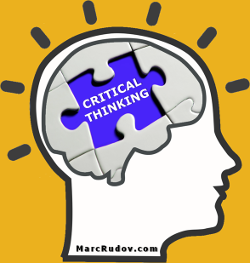 Increasingly, I hear one CEO after the other wax enthusiastic over artificial intelligence, or AI.
Increasingly, I hear one CEO after the other wax enthusiastic over artificial intelligence, or AI.
AI is a system that does the “thinking” that humans do, or once did.
When you call AT&T’s customer service, for example, the computer recognizes your number. In a faux human voice, it asks you to describe your problem, makes fake typing sounds while searching its database, and tries to direct you to the correct department. Alas, things often go downhill from there, and you start yelling into your phone and then want to stab yourself in the eye with a pencil.
This is a universally annoying situation. It breeds contempt and destroys brands. Yet, most firms don’t give a crap about the extent of the damage caused by impersonal, erratic machines and the lack of caring, competent human contact.
Who designs AI software? Flawed humans.
Recently, a CEO told me he wants to infuse all his products with AI, ASAP. When I asked him why, he paused … then rationalized that everyone else is doing it.
Seriously? Oh, yes.
Another example of breathlessly, irrationally chasing technology, with no vision of the finish line or the purpose of the race.
Knowing Why
An appropriate metaphor. Recall the episode of Seinfeld called “The Soup.” Kenny Bania, a pesky comedian, offers to give Jerry a free Armani suit that he’s outgrown from weightlifting. He wants nothing in return but will accept dinner at Mendy’s. Jerry begrudgingly agrees. As the two men dine, they have this exchange:
Bania: I start out with curls. That’s good for the bicep. (motions with 2 fingers along his right bicep). I do 10 reps, 2 sets.
Jerry: That’s fantastic (he utters with disdainful sarcasm).
Bania: You work out with weights?
Jerry: No, I don’t.
Bania: You should.
Jerry: Why?
Bania’s broad smile of enthusiasm evaporates. He has no answer.
This is exactly how too many technology conversations sound. When probed, people can’t explain their decisions or do so with nonsensical, hyperbolic jargon.
And, not only does excessive automation often boomerang, in that the customer experience suffers, it has a pernicious downside.
Fortune reports that, at Microsoft’s recent Build conference in Redmond, CEO Satya Nadella told attendees to consider the potential “unintended consequences” of their creations so that the “dystopian societies” presented in the works of authors George Orwell and Aldous Huxley don’t come to fruition.
The Real Artificial Intelligence
Here’s my definition of artificial intelligence: Making decisions without critical thinking.
Examples:
- Zealously and blindly incorporating AI (or any technology) into products without knowing how and why it will benefit customers, from their perspective
- Kicking a passenger off a United Airlines flight without foreseeing the obvious consequences.
It’s as though the critical-thinking puzzle-piece is now missing from the typical brain. Alas, we have people becoming robots and robots becoming people. Strange.
Remember: Any decision made without critical thinking will backfire.
Parting Advice to CEOs
Stop assuming that, because a technology exists, it’s sensible, compulsory, and certifiably beneficial to customers.
Getting caught up in Technologism, the “religion” of technology (read Chapter 11 in Brand Is Destiny), is a lost cause.
Can you justify your artificial intelligence? Explain why your company uses AI in its products and systems, as well as why it makes decisions without critical thinking.
© 2017 Marc H. Rudov. All Rights Reserved.
About the Author

Marc Rudov is a branding advisor to CEOs,
producer of MarcRudovTV, and author of four books

